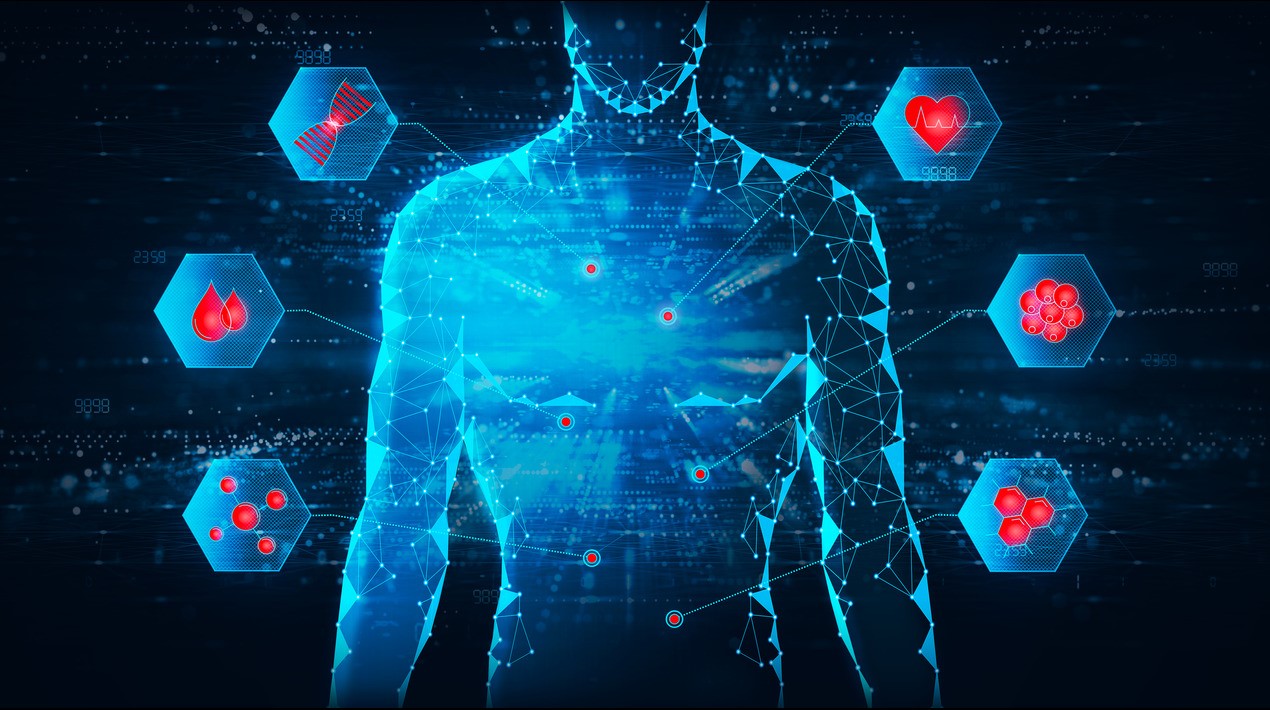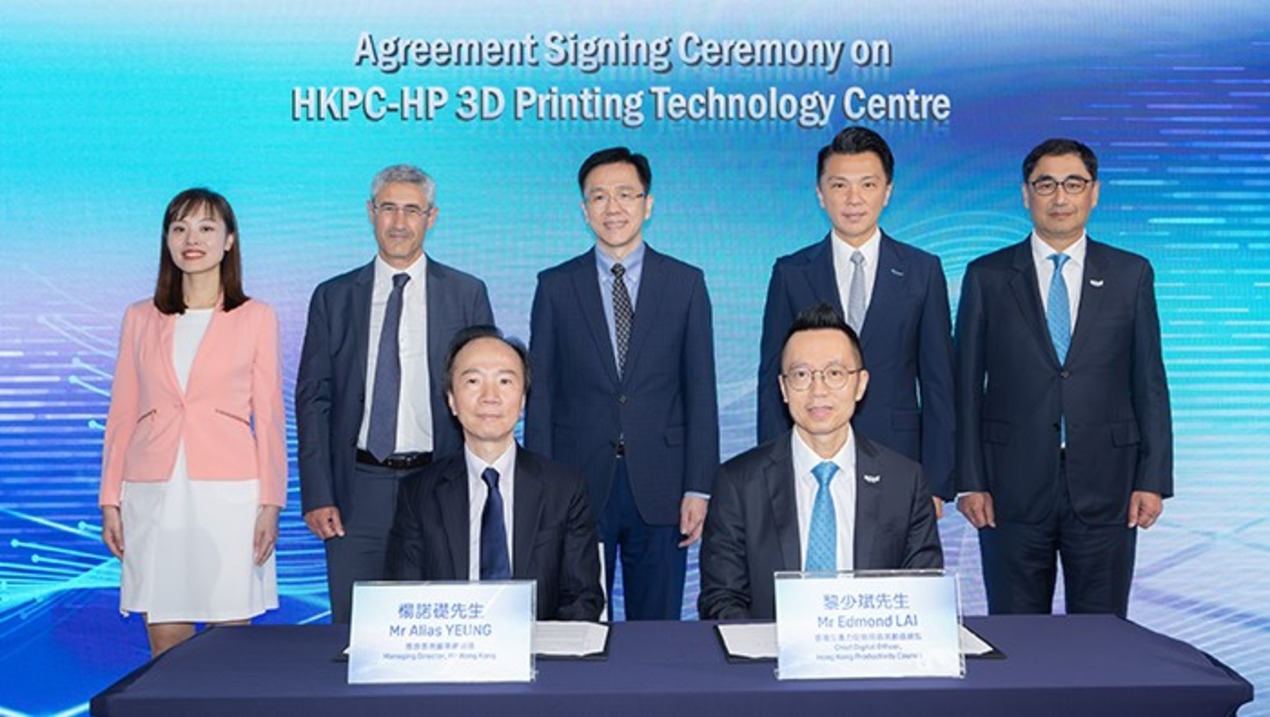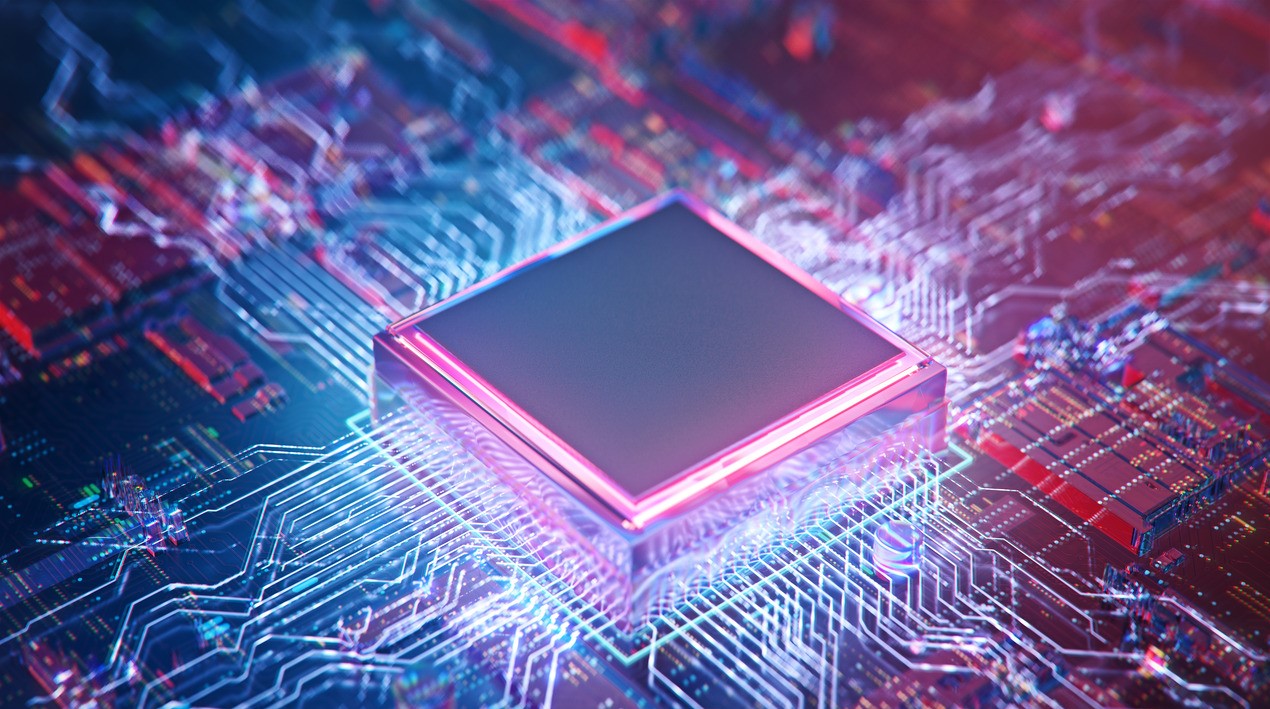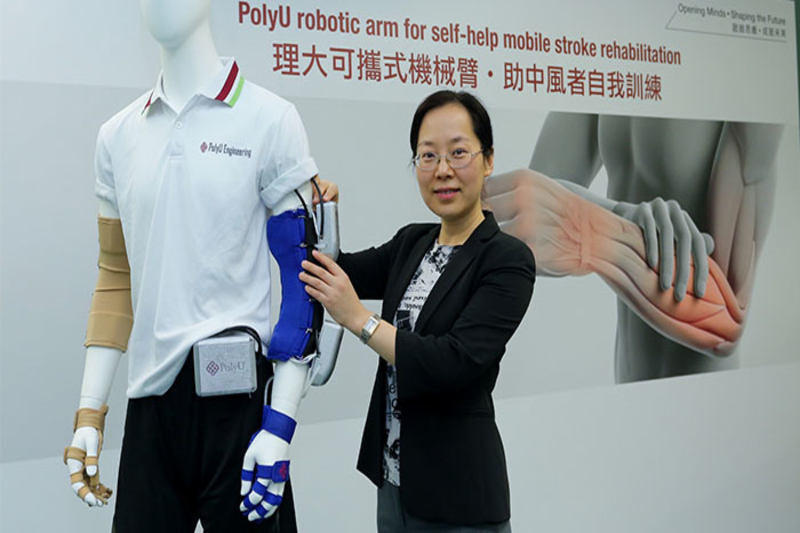
According to a recent press release, The Hong Kong Polytechnic University (PolyU) announced that is has developed a robotic arm to facilitate self-help and upper-limb mobile rehabilitation for stroke patients.
The lightweight device enables the patients to engage in intensive and effective self-help rehabilitation exercise anywhere, anytime after they are discharged from the hospital.
The robotic arm, called “mobile exo-neuro-musculo-skeleton”, is the first-of-its-kind integration of exo-skeleton, soft robot and exo-nerve stimulation technologies.
Stroke is the third leading cause of disability worldwide. In Hong Kong, there are about 25,000 new incidences of stroke annually in recent years. Research studies have proven that intensive, repeated and long-term rehabilitation training are critical for enhancing the physical mobility of stroke patients, thus help to alleviate post-stroke symptoms such as disability.
However, access to the outpatient rehabilitation service for stroke patients is often difficult and stressful. As a result of the overwhelming demand for rehabilitation services, patients often have to queue up for a long time to get a slot for rehabilitation training. As such, they do not get timely support and routine rehabilitation exercises. In addition, stroke patients find it challenging to travel from home to outpatient clinics.

The “mobile exo-neuro-musculo-skeleton”, developed by a research team at the Department of Biomedical Engineering (BME) at PolyU, features lightweight design (up to 300g for wearable upper limb components, which are fit for different functional training needs), low power demand (12V rechargeable battery supply for 4-hour continuous use), and sportswear features.
The robotic arm thus provides a flexible, self-help, easy-to-use, mobile tool for patients to supplement their rehabilitation sessions at the clinic. The innovative training option can effectively enhance the rehabilitation progress.
The doctor who headed its design said that the development of the novel device was inspired by the feedback of many stroke patients who were discharged from the hospital.
They faced problems in having regular and intensive rehabilitation training crucial for limb recovery.
The doctor noted that the team is confident that with the mobile exo-neuro-musculo-skeleton, stroke patients can conduct rehabilitation training anytime and anywhere, turning the training into part of their daily activities.
The team also hopes that such flexible self-help training can well supplement traditional outpatient rehabilitation services, helping stroke patients achieve a much better rehabilitation progress.
It is anticipated that the robotic arm can be commercialised in two years.
The BME innovation integrates exo-skeleton and soft robot structural designs – the two technologies commonly adopted in existing upper-limb rehabilitation training devices for stroke patients as well as the PolyU-patented exo-nerve stimulation technology.
Integration of exo-skeleton, soft robot and exo-nerve stimulation technologies
The working principle of both exo-skeleton and soft robot designs is to provide external mechanical forces driven by voluntary muscle signals to assist the patient’s desired joint movement. The conventional exo-skeleton structure is mainly constructed by orthotic materials like metal and plastic; while compact it is heavy and uncomfortable to wear. And while the soft robot is made of air-filled or liquid-filled pipes to simulate one’s external muscles, is light in weight but very bulky in size, both types of structures demand high electrical power for driving motors or pumps, thus it is not convenient for patients to use them outside hospitals or rehabilitation centres.
Combining the advantages of both structural designs, the BME innovative robotic arm is light in weight, compact in size, fast in response and demands minimal power supply, therefore it is suitable for use in both indoor and outdoor environment.
The robotic arm is unique in performing outstanding rehabilitation effect by further integrating the external mechanical force design with the PolyU-patented Neuro-muscular Electrical Stimulation (NMES) technology.
Upon detecting the electromyography signals at the user’s muscles, the device will respond by applying NMES to contract the muscles, as well as exerting external mechanical forces to assist the joint’s desired voluntary movement.
Research studies found that the combination of muscle strength triggered by NMES and external mechanical forces is 40% more effective for stroke rehabilitation than applying external mechanical forces alone.
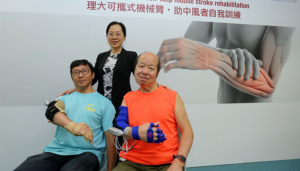
Rehabilitation effect proven in trials
An initial trial of the robotic arm on 10 stroke patients indicated better muscle coordination, wrist and finger functions, and lower muscle spasticity of all after they have completed 20 two-hour training sessions. Further clinical trials will be carried out in collaboration with hospitals and clinics.
The robotic arm consists of components for wrist/hand, elbow, and fingers which can be worn separately or together for different functional training needs. The sportswear design, using washable fabric with ultraviolet protection and good ventilation, also makes the robotic arm a comfortable wear for the patients.
The device also has a value-added feature of connecting to a mobile application (APP) where the user can use the APP interface to control their own training. The APP also records real-time training data for better monitoring of the rehabilitation progress by both healthcare practitioners and the patients themselves. It can also serve as a social network platform for stroke patients to communicate online with each other for mutual support.



